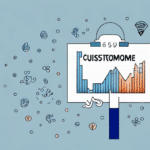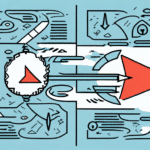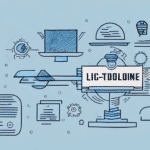10 Inspiring Customer Retention Quotes to Boost Your Business Growth
In today’s competitive business landscape, customer retention is crucial for the growth and success of any business. Acquiring new customers can cost up to five times more than retaining existing ones. Building a loyal customer base not only helps businesses save costs but also leads to increased revenue and profitability. Here are ten inspiring quotes from experts that emphasize the importance of customer retention and how it can help your business grow.
Understanding the Importance of Customer Retention
Why Customer Retention Trumps Acquisition
According to Jill Griffin, author of “Customer Loyalty: How to Earn It, How to Keep It,” retaining existing customers is more profitable than acquiring new ones. Bob Hooey, motivational speaker and author, adds, “If you’re not taking care of your customers, your competitor will.”
Customer retention is not only more profitable but also more cost-effective than acquiring new customers. Research by Invesp indicates that it costs five times more to attract a new customer than to retain an existing one. Additionally, existing customers are more likely to make repeat purchases and refer others to your business, driving further growth and success.
The Benefits of Focusing on Customer Retention
Research shows that a 5% increase in customer retention can lead to a 25% increase in profits. While acquiring new customers is important, retaining existing ones offers numerous benefits. Chip Bell, author and speaker, states, “Loyal customers, they don’t just come back, they don’t simply recommend you, they insist that their friends do business with you.”
- Reducing marketing costs: It is more expensive to acquire new customers than to retain existing ones.
- Increased customer satisfaction: When customers feel valued and appreciated, they are more likely to continue doing business with a company.
- Positive word-of-mouth advertising and increased brand loyalty: Satisfied customers are more likely to recommend your business to others.
Strategies to Enhance Customer Retention
Building Strong Customer Relationships
“Customer retention is not a transaction, it’s about building a relationship,” says Gary Vaynerchuk, entrepreneur and author. Building a relationship with customers requires providing exceptional customer service, building trust, and communicating regularly. Offering personalized experiences, rewards programs, and leveraging social media are some effective strategies for improving customer retention.
- Actively seeking and responding to customer feedback.
- Offering exclusive promotions or discounts to loyal customers.
The Role of Personalization in Customer Retention
Personalization involves tailoring products or services to meet the individual needs and preferences of customers. Seth Godin, author and entrepreneur, states, “Marketing is no longer about the stuff that you make, but about the stories you tell.” Personalization helps businesses tell their brand story effectively and build meaningful relationships with customers.
One of the key benefits of personalization is that it can significantly improve customer retention rates. By providing customers with personalized experiences, businesses can create a sense of loyalty and trust, leading to repeat purchases and long-term relationships. Studies by Campaign Monitor have shown that personalized emails have an open rate that is 29% higher than non-personalized emails.
Leveraging Social Media for Enhanced Customer Engagement
Social media provides businesses with a platform to engage with customers and build relationships. Brian Solis, digital analyst and author, says, “Engage with your customers or someone else will.” Social media allows businesses to understand customer preferences, respond to feedback, and offer personalized experiences.
One of the key benefits of leveraging social media for customer retention is the ability to create a sense of community around your brand. By regularly posting engaging content and responding to customer comments and messages, businesses can foster a loyal following of customers who feel connected to the brand and its values.
Providing Exceptional Customer Service
“Customer service is not a department, it’s everyone’s job,” says an industry expert. Providing exceptional customer service requires businesses to understand customer needs, respond promptly to complaints, and provide proactive support. Exceptional customer service creates loyal customers who are willing to advocate for your brand and recommend it to others.
Moreover, providing exceptional customer service can also lead to increased revenue and profitability. Satisfied customers are more likely to make repeat purchases and spend more money on your products or services. They are also more likely to leave positive reviews and ratings, which can attract new customers and improve your brand’s reputation.
Implementing Rewards Programs to Foster Loyalty
“Customer experience is the new marketing,” says Steve Cannon, CEO of Mercedes-Benz USA. Offering rewards and incentives to customers can motivate them to remain loyal and make repeat purchases. Rewards programs are an effective way to show customers that they are valued and appreciated.
One of the key benefits of rewards programs is that they can provide valuable data and insights into customer behavior. By tracking customer purchases and preferences, businesses can gain a better understanding of what motivates their customers and tailor their rewards programs accordingly. This data can also inform other aspects of the business, such as product development and marketing strategies.
Measuring and Analyzing Customer Retention
How to Measure Your Customer Retention Rate
Customer retention rate is the percentage of customers that remain loyal to your brand and repeatedly purchase your products or services. Measuring and tracking your customer retention rate can help businesses identify areas for improvement and develop strategies to retain customers.
One way to measure your customer retention rate is to calculate the percentage of customers who have made repeat purchases within a specific time frame, such as a month or a year. Another method is to survey your customers and ask them about their likelihood to continue doing business with your company. By analyzing this data, you can identify patterns and trends in customer behavior and make informed decisions about how to improve your retention rate.
Tools and Technologies to Enhance Customer Retention Efforts
Technology can help businesses provide more personalized and efficient customer experiences. Tools like Customer Relationship Management (CRM) software, chatbots, and email marketing platforms can help businesses automate and personalize customer interactions, thereby improving the overall customer experience.
Overcoming Challenges in Customer Retention
Addressing and Turning Dissatisfied Customers into Loyal Ones
“Make a customer, not a sale,” says Katherine Barchetti, author. Dissatisfied customers can often be turned into loyal ones if their concerns and complaints are addressed promptly and effectively. Building a culture of empathy and care can help businesses retain dissatisfied customers and create opportunities for growth.
One effective way to address customer complaints is to actively listen to their concerns. This means giving them your full attention, acknowledging their feelings, and asking questions to fully understand the issue. Once you have a clear understanding of the problem, you can work with the customer to find a solution that meets their needs.
Another important factor in turning dissatisfied customers into loyal ones is follow-up. After a complaint has been resolved, it’s important to check in with the customer to ensure they are satisfied with the outcome. This shows that you value their business and are committed to providing excellent customer service.
Challenges and Solutions in Implementing a Strong Customer Retention Strategy
Implementing a strong customer retention strategy can be challenging. It requires businesses to prioritize customer needs and make changes to their existing practices. However, the benefits of customer retention far outweigh the challenges. By understanding customer needs, providing personalized experiences, and building relationships, businesses can overcome challenges and enhance customer loyalty.
Case Studies: Successful Customer Retention Examples
There are countless examples of successful customer retention strategies that businesses can learn from. Companies like Amazon, Zappos, and Starbucks have built strong customer loyalty by offering exceptional customer experiences and personalized services. Learning from these success stories can help businesses develop effective customer retention strategies.
One example of a successful customer retention strategy is offering loyalty programs. These programs reward customers for their continued business, often through discounts, exclusive offers, or free products. For instance, Sephora’s Beauty Insider program offers members exclusive access to new products, free makeovers, and birthday gifts. By providing these incentives, Sephora encourages customers to continue shopping with them and builds a sense of community among its loyal customers.
Another effective customer retention strategy is providing excellent customer service. This includes responding promptly to customer inquiries and complaints, offering personalized recommendations, and going above and beyond to ensure customer satisfaction. For example, Ritz-Carlton hotels are known for their exceptional customer service, with staff members trained to anticipate guests’ needs and provide personalized experiences. By prioritizing customer service, Ritz-Carlton has built a loyal customer base that returns to their hotels time and time again.
Expert Tips on Improving Customer Retention
Industry experts offer valuable insights and tips on improving customer retention. Experts like Jay Baer, Shep Hyken, and Joey Coleman emphasize that customer retention is about building relationships and providing exceptional service. By listening to customers, understanding their needs, and investing in their experiences, businesses can build loyal customer bases.
Conclusion: The Value of Investing in Customer Retention
A successful customer retention strategy can lead to increased revenue, profitability, and customer loyalty. By providing exceptional customer service, building relationships, and offering personalized experiences, businesses can retain customers and drive growth. As Jim Rohn, entrepreneur and author, states, “One customer well taken care of could be more valuable than $10,000 worth of advertising.” Investing in customer retention is not just beneficial—it's essential for long-term business success.




















